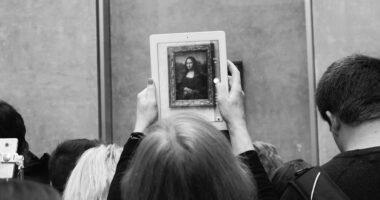At the heart of the burgeoning digital landscape lies blockchain technology, a decentralized ledger system that has revolutionized the way we think about data storage and transaction verification. This technology operates on a network of computers, or nodes, that collectively maintain a secure and immutable record of transactions. Each block in the chain contains a set of transactions, and once added, it cannot be altered without the consensus of the network.
This feature not only enhances security but also fosters transparency, making it an ideal foundation for various applications, including cryptocurrencies and non-fungible tokens (NFTs). NFTs, in particular, have gained immense popularity as they allow for the tokenization of unique digital assets, ranging from art and music to virtual real estate and collectibles. By leveraging blockchain’s inherent properties, NFTs provide creators with a means to establish provenance and ownership in the digital realm, thus transforming how we perceive value in the digital age.
The rise of NFTs has sparked a paradigm shift in the art world, enabling artists to monetize their work in ways previously unimaginable. Unlike traditional art forms, where ownership is often ambiguous and reproduction is rampant, NFTs offer a solution by embedding ownership rights directly into the digital asset itself. This innovation not only empowers artists to retain control over their creations but also opens up new revenue streams through royalties on secondary sales.
As the market for NFTs continues to expand, understanding the underlying blockchain technology becomes crucial for artists and collectors alike. Familiarity with concepts such as smart contracts—self-executing contracts with the terms of the agreement directly written into code—can significantly enhance one’s ability to navigate this complex landscape. Thus, a comprehensive grasp of blockchain technology and NFTs is essential for anyone looking to thrive in this dynamic environment.
Key Takeaways
- Blockchain technology is the foundation of NFTs, providing a secure and transparent way to verify ownership and authenticity of digital assets.
- Digital art and design skills are essential for creating unique and visually appealing NFTs that stand out in the market.
- Understanding copyright and intellectual property laws is crucial for ensuring that NFTs are created and sold legally and ethically.
- Marketing and branding expertise is necessary for promoting and positioning NFTs in the competitive digital marketplace.
- Community engagement and networking abilities are important for building a strong support base and connecting with potential buyers and collaborators in the NFT space.
- Financial literacy and understanding of cryptocurrency are essential for navigating the financial aspects of buying, selling, and investing in NFTs.
- Adaptability and innovation are key for staying ahead in the rapidly evolving NFT landscape and leveraging new opportunities as they arise.
Digital Art and Design Skills
The Importance of Digital Art and Design Skills
In today’s visually-driven world, having strong digital art and design skills is crucial for artists. The ability to create captivating visuals not only enhances an artist’s portfolio but also serves as a vital tool for communication in a crowded marketplace. Digital art encompasses a wide range of techniques and mediums, from traditional painting methods adapted for digital platforms to 3D modeling and animation.
Mastering Software and Design Principles
Mastery of software such as Adobe Creative Suite, Procreate, or Blender can significantly elevate an artist’s work, allowing for greater creativity and experimentation. Understanding design principles—such as color theory, composition, and typography—can help artists create visually striking pieces that resonate with audiences on multiple levels. This foundation in design principles enables artists to produce high-quality work that stands out in a competitive market.
Adapting to Emerging Trends and Technologies
As the demand for unique digital assets grows, artists must also be adept at translating their creative vision into formats suitable for various platforms. This includes optimizing artwork for social media, creating engaging animations for websites, or designing immersive experiences for virtual reality environments. The versatility of digital art allows artists to explore new avenues for expression while reaching wider audiences. Developing a personal style that stands out in a saturated market is crucial; this often involves continuous learning and adaptation to emerging trends and technologies.
Positioning Yourself in the Digital Art Landscape
By honing their digital art and design skills, artists can not only enhance their creative output but also position themselves strategically within the evolving landscape of digital art and NFTs. This strategic positioning enables artists to stay ahead of the curve and capitalize on new opportunities in the digital art world.
Knowledge of Copyright and Intellectual Property Laws

Navigating the intricate world of copyright and intellectual property laws is paramount for artists operating in the digital space. As creators produce original works, understanding their rights and how to protect them becomes essential to safeguarding their artistic integrity and financial interests. Copyright law grants creators exclusive rights to their works, allowing them to control reproduction, distribution, and public display.
However, the digital nature of art complicates these issues; works can be easily copied or altered without permission, leading to potential infringement. Therefore, artists must familiarize themselves with copyright registration processes and the nuances of fair use to effectively protect their creations from unauthorized exploitation. In addition to copyright considerations, artists should also be aware of trademark laws that can further safeguard their brand identity.
Trademarks protect symbols, names, and slogans used to identify goods or services, which can be particularly relevant for artists looking to establish a recognizable brand in the NFT space. Understanding how to register trademarks and enforce them can provide an additional layer of protection against infringement. Furthermore, as the landscape of digital art evolves, so too do the legal frameworks surrounding it; staying informed about changes in legislation and emerging case law is crucial for artists seeking to navigate this complex terrain successfully.
By cultivating a robust understanding of copyright and intellectual property laws, artists can better protect their work while maximizing their potential for success in the digital marketplace.
Marketing and Branding Expertise
In today’s competitive environment, marketing and branding expertise are indispensable tools for artists aiming to carve out a niche in the digital art world. The proliferation of social media platforms has transformed how artists promote their work; effective marketing strategies can significantly enhance visibility and engagement with potential buyers. Artists must develop a cohesive brand identity that reflects their unique style and values while resonating with their target audience.
This involves creating a consistent visual aesthetic across all platforms—be it through logo design, color schemes, or typography—that helps establish recognition and trust among followers. Moreover, leveraging social media analytics can provide valuable insights into audience behavior and preferences, allowing artists to tailor their marketing efforts accordingly. Engaging with followers through regular updates, behind-the-scenes content, or interactive posts can foster a sense of community around an artist’s work.
Additionally, collaborations with other creators or influencers can amplify reach and introduce an artist’s work to new audiences. As the NFT market continues to grow, understanding how to effectively market digital assets becomes increasingly important; this includes crafting compelling narratives around each piece that highlight its uniqueness and value proposition. By honing their marketing and branding expertise, artists can not only elevate their visibility but also cultivate lasting relationships with collectors and fans.
Community Engagement and Networking Abilities
Building a strong network within the art community is essential for artists seeking success in the digital realm. Community engagement fosters connections that can lead to collaborative opportunities, mentorships, and exposure to new audiences. Participating in online forums, social media groups, or virtual exhibitions allows artists to share their work while also gaining insights from peers and industry professionals.
These interactions can be invaluable for personal growth as well as professional development; feedback from fellow artists can inspire new ideas or refine existing techniques. Moreover, engaging with collectors and enthusiasts helps create a loyal fan base that is more likely to support an artist’s endeavors. Networking extends beyond mere social interactions; it involves actively seeking out partnerships that can enhance an artist’s visibility and credibility.
Collaborating with other creators on joint projects or participating in group exhibitions can introduce an artist’s work to diverse audiences while fostering a sense of camaraderie within the community. Additionally, attending industry events—whether virtual or in-person—can provide opportunities for face-to-face interactions with potential buyers or collaborators. As the NFT space continues to evolve rapidly, staying connected with industry trends and developments through networking becomes increasingly important.
By prioritizing community engagement and networking abilities, artists can cultivate meaningful relationships that contribute to their long-term success in the digital art landscape.
Financial Literacy and Understanding of Cryptocurrency

Mastering Cryptocurrency Concepts
Familiarity with cryptocurrencies like Ethereum or Bitcoin is crucial, as many NFT transactions occur using these digital currencies. Artists must educate themselves about wallet management, transaction fees, and market volatility to navigate this new financial landscape effectively.
Strategic Planning for Long-term Sustainability
Financial literacy extends beyond mere transactional knowledge; it encompasses strategic planning for long-term sustainability. Artists should consider diversifying their income streams by exploring various platforms for selling their work or offering services such as commissions or workshops.
Empowering Artists through Financial Literacy
Understanding how to leverage royalties from secondary sales of NFTs can also provide ongoing revenue opportunities that traditional art sales may not offer. By developing a solid foundation in financial literacy and cryptocurrency understanding, artists can empower themselves to make strategic choices that enhance their financial stability while pursuing their creative passions.
Adaptability and Innovation
In an ever-evolving digital landscape characterized by rapid technological advancements and shifting consumer preferences, adaptability is a vital trait for artists seeking success in the NFT space. The ability to pivot in response to emerging trends or changes in market dynamics can significantly impact an artist’s relevance and longevity within the industry. This requires not only staying informed about technological developments—such as new blockchain platforms or innovative tools for creating digital art—but also being open to experimenting with different styles or mediums that resonate with contemporary audiences.
Embracing change rather than resisting it allows artists to remain agile in a competitive environment where innovation is key. Furthermore, fostering a mindset of innovation encourages artists to explore uncharted territories within their creative practice. This could involve integrating augmented reality elements into their artwork or utilizing artificial intelligence tools to generate unique pieces that challenge traditional notions of authorship.
By pushing boundaries and embracing experimentation, artists can differentiate themselves from others while capturing the attention of collectors who seek originality in their acquisitions. Ultimately, adaptability and innovation are not just about survival; they are essential components of thriving in a dynamic landscape where creativity knows no bounds. By cultivating these qualities alongside technical skills and industry knowledge, artists can position themselves at the forefront of the digital art revolution.
FAQs
What are NFTs?
NFTs, or non-fungible tokens, are digital assets that represent ownership or proof of authenticity of a unique item or piece of content, such as art, music, videos, and more, using blockchain technology.
What skills are required for a successful NFT career?
Some of the top skills required for a successful NFT career include a strong understanding of blockchain technology, digital art and design skills, knowledge of cryptocurrency and decentralized finance (DeFi), marketing and promotion abilities, and an understanding of intellectual property rights and copyright law.
Why is a strong understanding of blockchain technology important for an NFT career?
Blockchain technology is the underlying infrastructure for NFTs, so having a strong understanding of how blockchain works, including concepts like smart contracts and decentralized networks, is crucial for anyone looking to build a career in the NFT space.
How can digital art and design skills contribute to a successful NFT career?
Digital art and design skills are essential for creating and minting NFTs, as well as for developing visually appealing and marketable digital assets that can attract buyers and collectors in the NFT marketplace.
Why is knowledge of cryptocurrency and decentralized finance (DeFi) important for an NFT career?
Understanding cryptocurrency and DeFi is important for navigating the financial aspects of the NFT space, including buying, selling, and trading NFTs, as well as participating in NFT marketplaces and platforms that often operate using cryptocurrency and blockchain-based financial tools.
How can marketing and promotion abilities contribute to a successful NFT career?
Effective marketing and promotion skills are crucial for building a brand and attracting attention to NFT collections and projects, as well as for engaging with potential buyers and collectors in the competitive NFT marketplace.
Why is an understanding of intellectual property rights and copyright law important for an NFT career?
Navigating intellectual property rights and copyright law is essential for ensuring that NFTs are created and sold in a legally compliant manner, as well as for protecting the rights of creators and ensuring the authenticity and ownership of digital assets in the NFT space.





